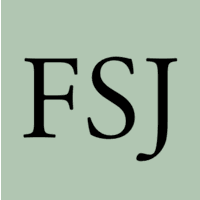Zusammenfassung
- Was Call For Papers — Fashion and Motherhood
- Wann to (Europe/Berlin / UTC200)
- URL https://drive.google.com/file/d/1XbZSfYBFsjMIzn05s-oVoMU6QMZwgY5g/view?usp=sharing
- Termin herunterladen iCal Datei herunterladen
Beschreibung
FSJ: The Fashion Studies Journal publishes a range of content, typically from full-fledged academic essays, reviews, and criticism to more narrative and creative work (including verse, photographs, etc.). The original call for papers on fashion and motherhood sought submissions from across this range of formats, and all are still welcome, though anyone submitting a more traditional academic paper will likely be asked if they would like to include it for consideration for the edited volume. A special Fashion and Motherhood series will still appear on the FSJ site (scheduled for late 2020) featuring the broader range of academic, semi-scholarly, creative, and narrative works.
A previous call for submissions was posted soliciting full papers on the subject of fashion and motherhood for FSJ: The Fashion Studies Journal, an open-source online journal in the interdisciplinary field of fashion studies. Due to the disruption of the academic year, the deadline is now extended to June 30th, 2020. An edited version of the original call for papers is copied below. Please direct any questions in advance of the submission deadline, as well as submissions by June 30th, to laura@fashionstudiesjournal.org
Becoming a mother,* whether through biological, adoptive, or other means, is not a rare experience. Wearing clothes, mother or not, is universal. But the nature and reality of dressing as a mother enjoys no particular consensus among those who do it; except, that is, that it’s different than it was before kids, and possibly different than it was for moms in previous generations. What factors shape mothers' experiences of dressing? Media (social and otherwise)? Religion, consumerism, sexuality, privilege, group belonging, the sometimes-shocking realities of a new body, words like "MILF"? A special series on the Fashion Studies Journal’s site, as well as a new edited volume of critical essays, seeks to interrogate the ever-changing social expectations of dressing while mothering and how lived bodily experiences, the material realities of clothing, and media-fuelled idealized images interact.
The FSJ site’s content ranges from thoroughly researched scholarly essays, media criticism, and personal narratives to photo collections and poetry. This series will ideally do the same, reflecting the infinite ways that motherhood acts upon the fashioned self. Theoretical, historical, ethnographic, personal narrative, and creative perspectives are welcome.
Some ideas to get you started:
- Examinations of the role of consumerism and entrepreneurship in the contemporary mom-wear landscape
- Personal reflections on individual garments that have defined the transition to motherhood
- Narratives of dressing for fertility treatments or adoption interviews
- Historical examples of the expectations placed on mothers’ dressed bodies, examined through images, texts, or surviving garments
- Analyses of the politics of dressing while parenting, especially as it intersects with other identities
- Critiques of media representation of the appearances of prominent mothers
- Ethnographies of particular mom tribes (are ‘soccer moms’ still a thing? If so, how do they dress?)
- Retail studies of mall maternity stores
- Discourse analyses of terms like 'MILF' and 'yummy mummy'
- Dress biographies of queer or gender non-conforming mothers/parents
- Sartorial reflections on not being a mother, by choice or otherwise
Max. 5000 words for full drafts for the FSJ series.
Abstracts for the edited volume proposal should be approximately 100 words.
*The term ‘mother’ is not meant to exclude those parents who identify as trans, non-binary, or in other gender-non-conforming ways. It’s just an easier catch-all term than ‘parent who isn’t a cis male.’ Indeed, we excitedly encourage these perspectives on dress and parenting. We are also open to being convinced that there is something equally interesting to say about dressing as a dad—we welcome your attempt!

